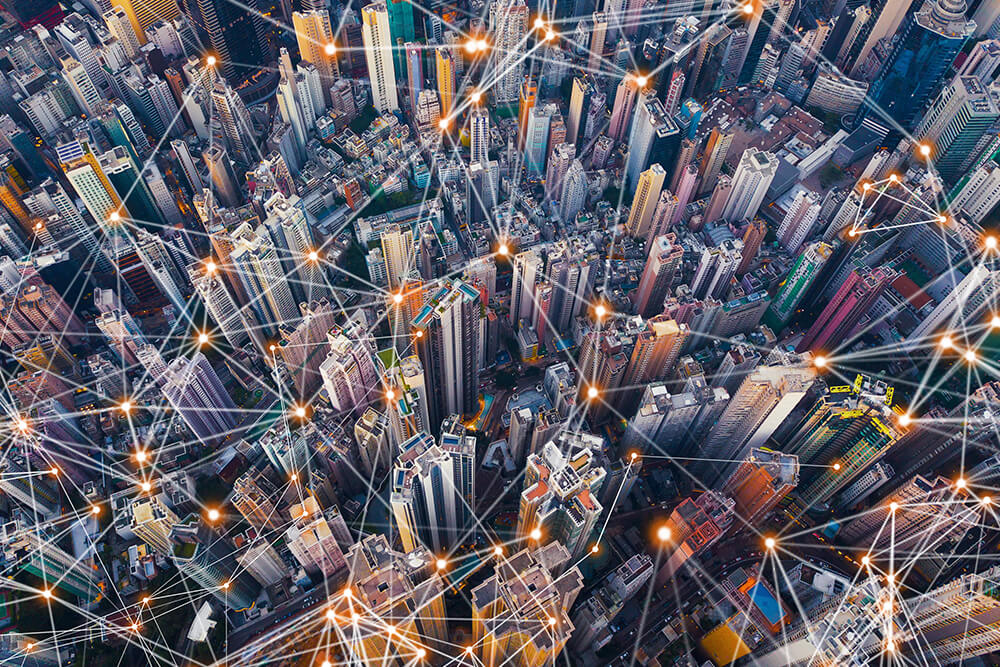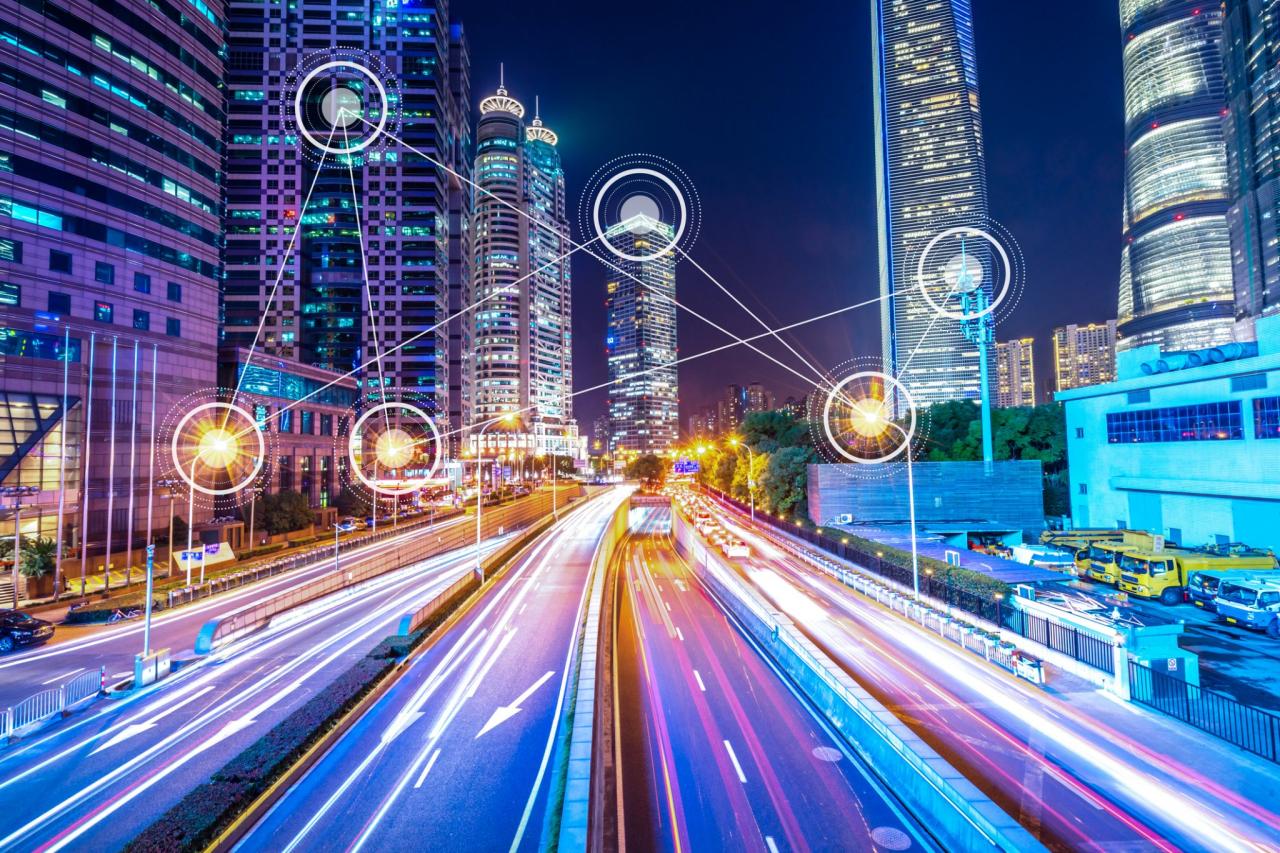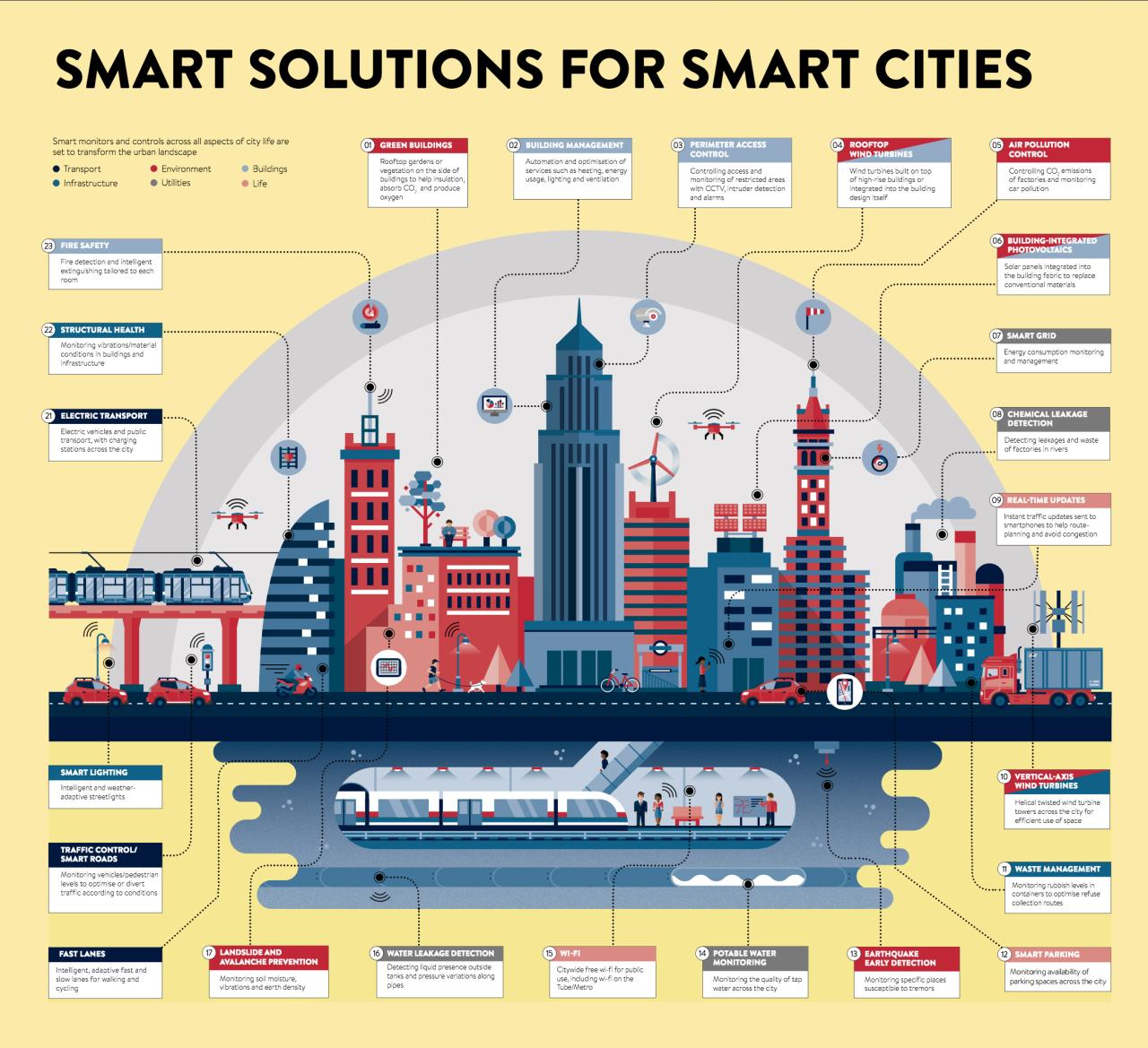As we delve into the realm of smart cities technology, we uncover a landscape filled with endless possibilities and transformative innovations. From sustainable solutions to cutting-edge data analytics, the future of smart cities technology promises to revolutionize urban living as we know it.
Exploring the intricate web of Internet of Things (IoT), sustainable initiatives, and artificial intelligence (AI), this discussion sheds light on the path towards smarter, more efficient urban environments.
Overview of Smart Cities Technology

Smart cities technology refers to the integration of digital and information and communication technologies (ICT) in urban areas to enhance the quality of life for residents, improve efficiency in city operations, and promote sustainability. This technology plays a crucial role in transforming traditional cities into modern, interconnected hubs of innovation and progress.One of the key impacts of smart cities technology on urban development is the optimization of resources and services.
By utilizing data analytics, IoT sensors, and automation, cities can streamline processes, reduce energy consumption, and enhance public services such as transportation and waste management.Examples of key components of smart cities technology include:
IoT sensors
These devices collect real-time data on various aspects of urban life, such as air quality, traffic flow, and energy usage.
Smart infrastructure
This includes intelligent transportation systems, smart buildings, and energy-efficient utilities that are interconnected and responsive to changing needs.
Data analytics
By analyzing the vast amounts of data generated by smart city technologies, policymakers can make informed decisions to improve urban planning and service delivery.
IoT Sensors in Smart Cities
IoT sensors are a fundamental component of smart cities technology, providing valuable insights into various aspects of urban life. These sensors can monitor air quality, detect traffic congestion, and optimize energy usage to create more sustainable and efficient cities.
- Environmental monitoring: IoT sensors can measure pollution levels, temperature, and humidity to help city officials identify areas that require intervention to improve air quality and public health.
- Traffic management: By collecting data on traffic flow and congestion, IoT sensors enable cities to implement adaptive traffic control systems that reduce travel times and minimize emissions.
- Energy efficiency: IoT sensors in buildings and utilities can track energy consumption patterns and adjust usage based on demand, leading to cost savings and reduced environmental impact.
Internet of Things (IoT) in Smart Cities

The Internet of Things (IoT) plays a crucial role in advancing smart cities technology by enabling the connection and communication between various devices and sensors in urban environments.
Enhancing Efficiency in Urban Environments
IoT devices enhance efficiency in smart cities by collecting and analyzing data in real-time, allowing for better decision-making processes and resource management.
- Smart traffic management systems utilize IoT sensors to monitor and optimize traffic flow, reducing congestion and improving transportation efficiency.
- IoT-enabled waste management systems can track waste levels in bins, optimizing collection routes and schedules to reduce costs and environmental impact.
- Smart energy grids use IoT devices to monitor energy consumption patterns, enabling more efficient distribution and utilization of resources.
Challenges and Opportunities of Implementing IoT in Smart Cities
While IoT offers numerous benefits, there are also challenges that come with implementing this technology in smart cities.
- Privacy and security concerns: With a vast amount of data being collected and shared, there is a need to ensure that sensitive information is protected from cyber threats.
- Interoperability issues: Different IoT devices and systems may not always communicate effectively with each other, leading to compatibility issues and hindering seamless integration.
- Scalability and sustainability: As smart cities grow, scalability becomes a concern, along with the need to ensure that IoT infrastructure is sustainable in the long run.
Sustainable Solutions in Smart Cities
Smart cities technology plays a crucial role in promoting sustainability by leveraging innovative solutions to address environmental challenges and improve the quality of life for residents. By incorporating smart technologies, cities can optimize resource usage, reduce carbon emissions, and enhance overall efficiency in various sectors.
Renewable Energy Integration
- Smart cities utilize IoT sensors and data analytics to optimize energy consumption and integrate renewable energy sources such as solar and wind power.
- By leveraging smart grids and energy management systems, cities can reduce reliance on fossil fuels, decrease greenhouse gas emissions, and promote a cleaner and more sustainable energy ecosystem.
Waste Management Optimization
- Smart waste management systems equipped with sensors and monitoring devices enable efficient collection, sorting, and recycling of waste materials.
- By implementing smart bins, route optimization algorithms, and real-time tracking, cities can reduce landfill waste, minimize environmental impact, and promote a circular economy approach.
Green Infrastructure Development
- Smart cities focus on integrating green spaces, urban forests, and sustainable buildings to enhance air quality, mitigate urban heat island effects, and promote biodiversity.
- Through the use of IoT sensors for monitoring air quality, water management systems, and green roof installations, cities can create healthier and more resilient environments for their inhabitants.
Data Analytics and AI in Smart Cities
Data analytics and artificial intelligence (AI) play a crucial role in optimizing operations within smart cities. By harnessing the power of data and advanced algorithms, cities can make informed decisions, improve efficiency, and enhance the overall quality of life for residents.
Importance of Data Analytics and AI
Data analytics allows smart cities to collect and analyze large volumes of data from various sources, such as sensors, devices, and social media. This data can provide valuable insights into traffic patterns, energy consumption, waste management, and more. AI algorithms can then process this data in real-time, enabling city officials to make proactive decisions and optimize resource allocation.
- AI algorithms can improve decision-making processes by predicting future trends and identifying patterns that may not be immediately apparent to human analysts.
- By utilizing AI-powered analytics, smart cities can optimize traffic flow, reduce energy consumption, and enhance public safety through predictive maintenance and emergency response systems.
- These technologies also enable cities to implement personalized services for residents, such as customized transportation routes or energy-saving recommendations based on individual preferences.
Ethical Considerations
As smart cities rely more on data analytics and AI, ethical considerations become increasingly important. It is crucial to address issues such as data privacy, security, and transparency to ensure that the use of these technologies benefits all residents equally.
- City officials must establish clear guidelines for data collection, storage, and usage to protect the privacy of individuals and prevent misuse of sensitive information.
- Transparency in AI algorithms is essential to avoid bias or discrimination in decision-making processes, ensuring fair treatment for all residents regardless of background or demographic factors.
- Ethical considerations also extend to the responsible handling of data, including secure data storage, encryption protocols, and measures to prevent unauthorized access or cyber-attacks.
Epilogue
In conclusion, the future of smart cities technology holds immense potential for reshaping our cities into sustainable, efficient, and interconnected hubs of innovation. Embracing these advancements will undoubtedly lead to a brighter and smarter future for urban dwellers worldwide.
Detailed FAQs
How does smart cities technology impact urban development?
Smart cities technology revolutionizes urban development by enhancing efficiency, sustainability, and connectivity through innovative solutions.
What are some key components of smart cities technology?
Key components include IoT devices, data analytics systems, AI algorithms, and sustainable initiatives aimed at improving urban living conditions.
What challenges are associated with implementing IoT in smart cities?
Challenges include data security concerns, interoperability issues, and the need for robust infrastructure to support a large network of IoT devices in urban environments.
